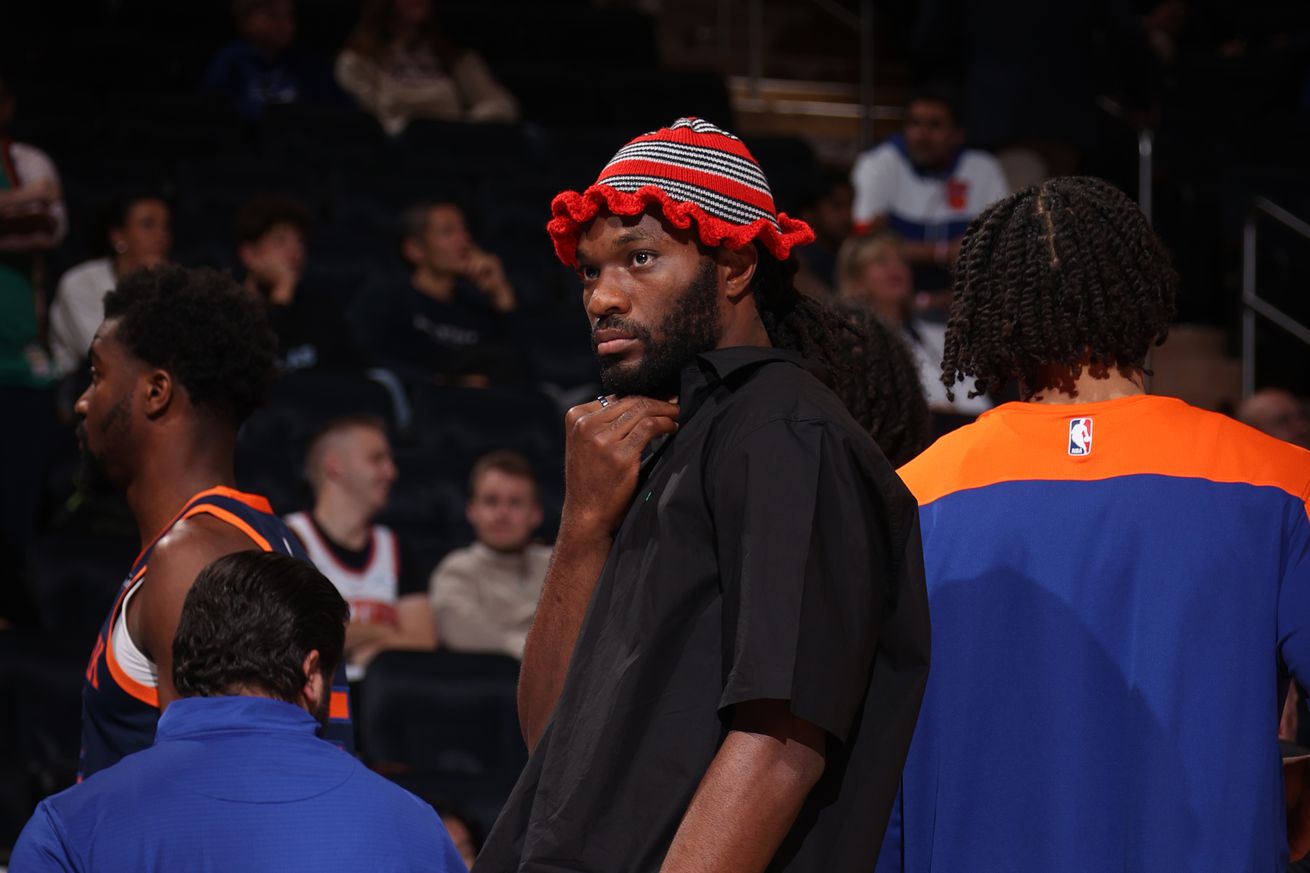
Inside the Knicks’ depth issues and financial limits in advance of trade season.
Recently, Kevin Pelton, Bobby Marks, and other ESPN NBA insiders examined six contenders—the Knicks, Lakers, Bucks, Heat, Pelicans, and 76ers—to assess their weaknesses and explore trade season options.
Unsurprisingly, these insiders identified the Knicks’ need for frontcourt depth and noted how injuries and salary cap constraints limit their roster flexibility.
According to Pelton, the Knicks are allocating “more than 74% of their minutes to their five starters, the highest percentage for any team in the NBA.” This heavy reliance on starters is a hallmark of Tom Thibodeau, but it poses issues when the injury bug strikes.
Backup centers Precious Achiuwa and Mitchell Robinson remain sidelined, guard Cameron Payne recently missed games due to a hamstring strain, and Knicks’ rotational players are often listed as “questionable” on the injury report. Pelton rightly emphasizes that “New York is going to need reinforcements to get through an 82-game schedule.”
To address their depth issue, the Knicks promoted second-round pick Ariel Hukporti from a two-way contract last week, providing a rostered player who doesn’t negatively impact their financial situation. “That move gave New York three 2024 draft picks on full NBA contracts, the most among last year’s playoff teams,” writes Pelton.
Bobby Marks highlights that “the health of center Mitchell Robinson will determine New York’s activity in the trade market.” Robinson has struggled with injuries, matching a career low in games played last season and undergoing two left ankle surgeries. He has yet to play since his last surgical procedure, and with $14.9 million and $12.5 million remaining on his deal over the next two seasons, health and money will factor into any potential trade discussions.
Financial constraints also pose a significant challenge. The Knicks are just “$580,872 below the second apron” of the salary cap, limiting their ability to take back salary in trades and preventing them from signing a 15th player until the end of February. While they possess eight second-round picks that could be used in trades, they have few first-round assets, which could hinder significant roster additions. Marks notes that “New York can aggregate contracts sent out but must stay below the second apron.”
Chris Herring addresses the Knicks’ defensive struggles, pointing out that the team “ranks 28th in one-on-one defense” and “24th in rim protection.” This underperformance is surprising, given the defensive reputations of players like Mikl Bridges and OG Anunoby. Herring suggests that “it might be smarter to wait for a return to health than to make another trade.” That sounds promising, but the Knicks have a 5-6 record, Achiuwa has yet to be cleared for contact, and who knows where Mitch is on his recovery journey? Is he still on target for a January return? Inquiring minds want to know.
The Knicks must balance immediate roster needs with long-term financial health. If Achiuwa can return strong in the short term and Mitch rings in the new year on a basketball court, they could provide a necessary boost without complex trades under tight salary cap restrictions. But if those plans falter, either Leon Rose, Brock Aller, and the front office team will need to get creative, or maybe they can book some time for Ariel Hukporti to train with Hakeem Olajuwon.
Go Knicks.
